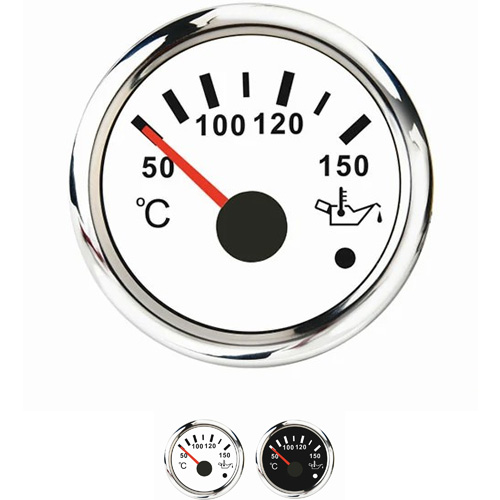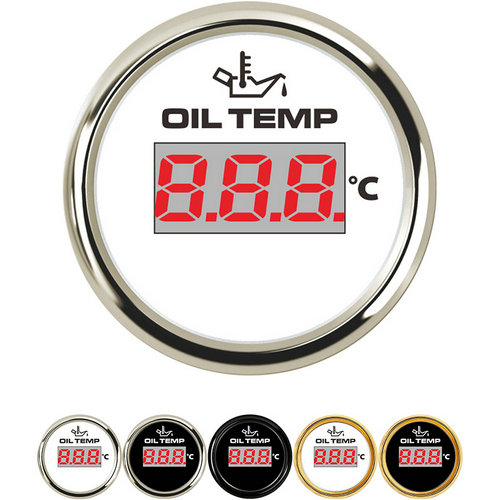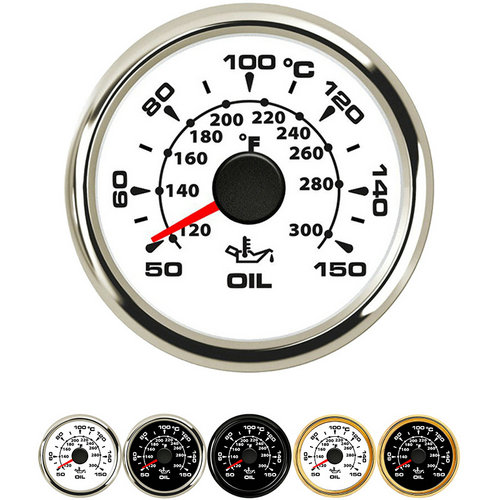air cooled engine oil temp gauge
The normal working temperature of automobile engine is slightly different due to the different structure and type of engine. The normal working temperature of ordinary four stroke water-cooled naturally aspirated engine is about 80 ~ 90 ℃; Many drivers who drive this kind of car for the first time think that the engine is boiling every time they look at the water temperature meter; In order to maintain the oil temperature, oil radiators will be installed on some highly reinforced engines to dissipate the oil and prevent the oil temperature from being too high.
The engine works at normal operating temperature, and the fit clearance between various parts is in the best state. The temperature of the combustion chamber is about 500 ~ 600°C. in this state, the combustion state of the fuel is the best, and the thermal efficiency and performance of the engine are in the best state. When the engine is started at low temperature, the viscosity of the lubricating oil will increase, which will also lead to the wear of the engine at low temperature; If the temperature of the cloud generator is too high, it will lead to the decrease of lubricating oil viscosity, poor lubrication, reduction or even disappearance of parts clearance, and finally lead to serious mechanical faults such as cylinder pulling, chemical tile and so on.
In order to maintain the normal working temperature of the engine, the engine has a complete set of cooling system and cooling intensity regulating device. Pay attention to keep the cooling system intact and functional in use. In particular, it should be noted that the operating temperature of many engines now exceeds 100°C. if ordinary water is used at this temperature, it will boil and lose cooling capacity, so qualified coolant must be used.

When air cooled engine oil temp gauge is high:
1. The engine becomes weaker and the efficiency of the equipment decreases.
2. The viscosity decreases, the lubrication performance decreases, and the temperature has a great influence on the viscosity of hydraulic oil. When the temperature rises, the activity of liquid molecules increases, the cohesion decreases, the hydraulic oil becomes thinner, the hydraulic oil film becomes thinner, it is easy to be damaged, the lubrication performance becomes worse, the wear of hydraulic components intensifies, and important hydraulic components such as hydraulic pump, valve and lock are damaged.
3. With the increase of internal leakage of the hydraulic system, the performance of the hydraulic system begins to become unstable. The working accuracy of the hydraulic system is reduced. The valve core and valve body of the control valve expand when heated, and the matching gap becomes smaller, which affects the movement of the valve core, intensifies wear, or even gets stuck, affecting the operation of the hydraulic system.
4. The accelerated oxidation rate of hydraulic oil will lead to the deterioration of hydraulic oil and reduce the service life of hydraulic oil.
 English
English 



Get a Quote / Info